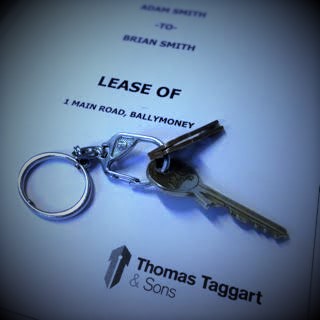
DOMESTIC TENANCIES: THE POTENTIAL PITFALLS
Leasing a private domestic property is often a tempting prospect for property owners seeking to increase their capital income. The advantages are obvious: it provides a regular, fixed income to supplement existing take-home pay; it allows the property owner to retain ownership of the property in the short term in order to take advantage of long-term projected house price increases; it ensures the property is heated during winter months and ventilated during the summer months; and, given that certain deductions can be written off as non-taxable expenses, it can also provide tax efficiency savings. However landlords also need to consider quite a few other factors before handing over the keys to their property.
1. Statement of Tenancy Terms
Under the Private Tenancies (NI) Order 2006 (“2006 Order”) landlords must now provide tenants with a written statement of tenancy terms at the outset of the tenancy. Among other things, this should specify the landlord’s name, address and contact number, an emergency contact number, the duration of the tenancy, the rent, who is to be responsible for payment of rates, details of the deposit (if any) and the repairing obligations of the landlord and tenant respectively. It should also contain an inventory of furniture or furnishings and the “additional information” set out in the Schedule to the Tenancy Terms Regulations (NI) 2007. Failure to provide this information is an offence which could result in a fine of up to £2,500.
2. Rent Book
The 2006 Order requires landlords to provide a rent book to the tenant at the outset of the tenancy even if the rent is to be paid electronically. This must specify, among other things, the agreed rate of rent, the capital value of the property and full contact details for the landlord. The local council authority has powers to prosecute the landlord if a fully compliant rent book is not provided.
3. Tenancy Deposit Scheme
Deposits were traditionally the landlord’s most effective means of ensuring compliance with the terms of the tenancy. Their effectiveness has been somewhat blunted however by the introduction of the statutory Tenancy Deposit Scheme. From 1 April 2013 onwards, landlords must protect any deposit he or she receives in an approved scheme within 14 days. Failure to do so could result in the landlord being fined up to three times the amount of the deposit or up to £20,000 if the local council authority decides to prosecute the landlord in court.
4. Unfair tenancy terms
Private tenancies must now comply with the Unfair Terms in Consumer Contracts Regulations 1999. A tenant who believes that a term of his tenancy is unfair can report it to the Trading Standards Service which has the power to take legal action against the landlord if wrongdoing is discovered.
5. Gas appliances
Landlords must ensure that all gas appliances contained within the property are properly maintained and that an annual safety check is carried out by a CORGI registered tradesman. They also need also to provide a copy of the safety check report to the tenant within 28 days of the check taking place.
6. Furniture and furnishings
All furniture and furnishings supplied as part of the tenancy must also now meet the requirements set out in the Furniture and Furnishing (Fire) (Safety) Regulations. Information stating whether the furniture or furnishing complies with the regulations is usually contained on the manufacturer’s label attached to it. Items which don’t provide this information should be assumed not to comply and not be included as part of the tenancy.
7. Houses in Multiple Occupation
A house in multiple occupation (“HMO”) is defined as a house occupied as a principal residence by two or more people who are not members of the same family. The majority of such houses in Northern Ireland are student lettings. Due to the increased risks of such tenancies (for example, tenants in such houses are more likely to lock the doors to their rooms) higher safety and fire prevention standards are imposed which need to be complied with. HMOs also need to be registered with the Northern Ireland Housing Executive for which there is a fee.
8. Determination of the tenancy
Ending the tenancy can often prove trickier than expected. The 2006 Order requires landlords to provide tenants with a certain amount of written notice before bringing the tenancy to an end. The length of notice required depends on the length of the tenancy; for a tenancy lasting less than 5 years no less than 4 weeks’ written notice can be given. If the tenant refuses to vacate after this period, the landlord must apply to court for an order seeking possession. Forcibly removing a tenant (for example by changing the locks, removing the tenant’s belongings etc.) is likely to be viewed by a court as an illegal eviction which could result in a fine of up to £5,000 and/or imprisonment.
In light of the above, it is important to take good legal advice before seeking a tenant for your property. Thomas Taggart & Sons have been providing legal advice to landlords throughout Northern Ireland for many years and its solicitors are fully versed in the latest legislation and its implications for landlords. We can advise you what you need to do to protect your interests and ensure that the relevant tenancy documentation is prepared in advance of meeting with your prospective tenant. Alternatively, if you are involved in a dispute with a tenant, we can robustly represent your interests and defend you at court if necessary.
Please contact Keith Dunn for more information.
